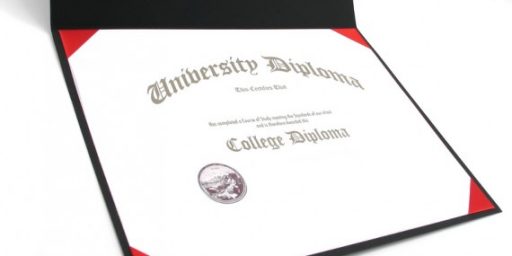TEACH FOR AMERICA
This piece in yesterday’s Washington Post Magazine was especially compelling. It’s about the experiences of two brand new graduates of elite universities who went to teach in the DC public school system and the radically different experiences they had. I’ll hold my comments for now; please full free to share your views in the Comments section below.






How does one comment on situations where those held to account have no ability to control anything. They were placed in an environment totally out of control from the top down. The one teacher who had success was quite obviously an anomaly compared to the chaos throughout the rest of the school. It may well not have worked with any other classroom, either, else the rest of the school should have followed that path to total change.
MB’s own two sons complained many times about disruptive students in their classes, and they attended what was considered a very good suburban school, not inner city. And it was 25 years ago.
I seem to have read this before in the WSJ. I remember since a couple of my students have worked in Teach for America and have told me of how difficult it can be. I wonder if that student facing the lawsuit is now voting Republican. He certainly can’t be giving money to John Kerry, can he?
I STRONGLY doubt that Nick Ehrmann was the rule rather than the exception.
If he were the rule rather than the exception, the school would not be a mad house now would it?
The Discrict school system has been a great lab to see what happens when liberals have an unchecked ability to make policy.
And we see the result.
The liberals have fought long and hard for contol of the district. Who now can they blame but themselves for their failure?
This isn’t a “liberal” or a “conservative” thing, it’s the “sue-happy nation” combined with “teacher’s union” thing. There are some simple solutions that will solve the problem; they will never be implemented in the current societal environment.
Requiring kids to go to school is a horrible mistake. This was originally done in an age when parents wanted to make their kids work instead of going to school. Thanks to child labor laws that’s much less likely to happen today, so there’s little justification for it now. If the kids really don’t want to be there and their parents don’t want them there either, don’t try to cage them up like animals–I can think of far better ways to spend taxpayer money than on fancy children’s zoos. In fact, I’d be well within my rights as a sane taxpayer to insist on this.
That one measure, combined with a generous “kick the kids out if they don’t behave” policy, would reduce the size of the classrooms described in the article by 80% and very likely solve the behavior problems. I don’t think it’ll happen because the teachers would lose jobs, but it’s the basis of an approach that would work.
Pandering to the “hi, my name is Karrey and I have a 5-second attention span” child isn’t good either. Education isn’t entertainment and doesn’t need to be. Kids need to learn from a young age the value of patience and concentration on a given task. Showing them hyperanimated TV shows and screaming “learning is FUN!” won’t accomplish this.
We’ve clearly gone too far in stopping punishment. However, I do want to point out that everyone complains about “nobody punishes kids in school today” but everyone also seems to have forgotten about the 2nd-grade teacher who got her jollies from paddling kids for no particular reason. (Yes, that was my 2nd-grade teacher.) There has to be a balance, and we’re desperately groping for it–but we’re not likely to find it when parents can sue at the drop of a hat. “Free money!”, they cry, when their kids are punished.
One approach would be to closely define the school’s ultimate goals. They absolutely need to teach literacy, but once a child has demonstrated a sufficiently high level they’re on their own. The kids are welcome to stay in school, but only if they earn at least a C average and behave reasonably.
A large part of the problem is that school is free and hence has no value. The states are obligated to provide it, and the kids are required to be there; what could be more free than that? (Sure, it costs the taxpayers money, but that doesn’t “really” count because nobody actually gets a bill for it.)
There’s also the parental responsibility angle. It’s an effect of the “both parents must work” philosophy we’ve grown accustomed to. Everyone complains that both parents must work to make enough money–but that only happened because both parents started working and average personal incomes decreased as a response thanks to increased labor availability. Good for the country, bad for kids.
So, yeah, it’s a fundamental problem that’s been burgeoning for years, exacerbated by various societal trends. I’m not worried about it myself since my kids will be home-schooled. The states need to face the fact there’s a serious problem here that can be fixed with the application of some common sense and a few rules–and by spending less money, not more.
—